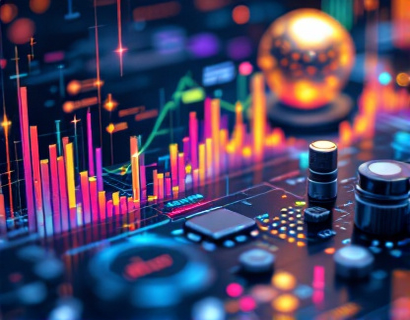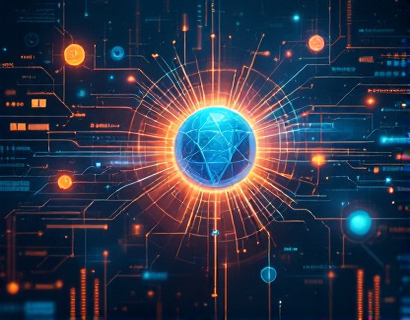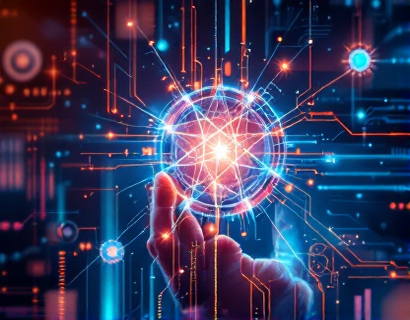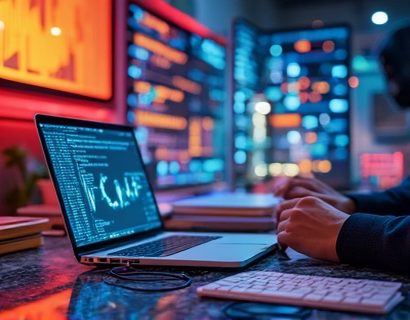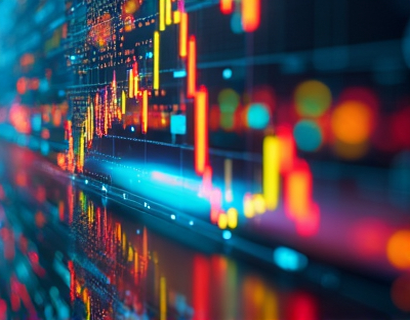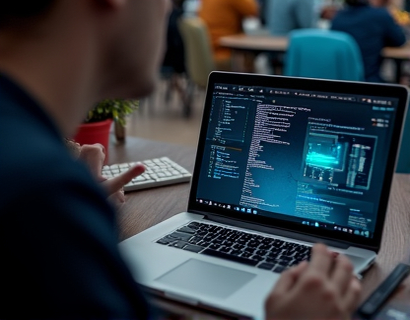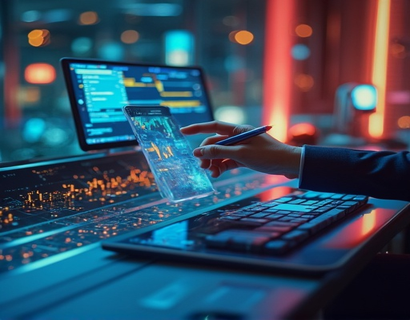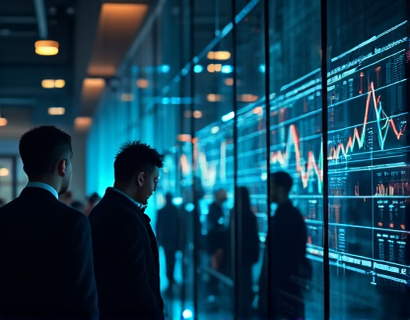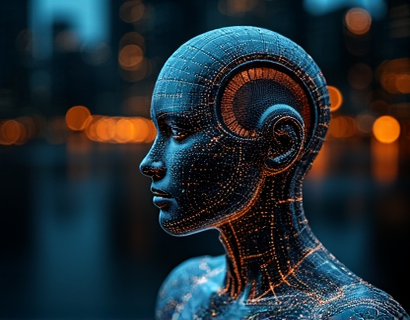Unlocking Enhanced Digital Experiences: The Synergy of Crypto and AI
The intersection of cryptocurrency and artificial intelligence (AI) is giving rise to a new era of digital innovation, where the boundaries of traditional technology are being redefined. This fusion is not just about combining two powerful technologies; it's about creating a synergistic effect that enhances connectivity, user engagement, and overall digital experiences. As we delve into this topic, we will explore how these advancements are driving growth and transformation in the tech ecosystem, focusing on the practical applications and future potential of this revolutionary combination.
The Foundations of Cryptocurrency and AI
To understand the impact of crypto and AI, it's essential to first grasp the fundamentals of each technology. Cryptocurrency, a digital or virtual currency, uses cryptography for security and operates on a decentralized network, typically a blockchain. This decentralized nature ensures transparency, security, and reduces the need for intermediaries, making transactions more efficient and cost-effective. On the other hand, AI refers to the simulation of human intelligence processes by machines, particularly computer systems. These processes include learning (the acquisition of information and rules for using it), reasoning (using rules to reach approximate or definite conclusions), and self-correction.
The integration of AI into cryptocurrency systems has opened new avenues for innovation. AI algorithms can analyze vast amounts of data to predict market trends, optimize trading strategies, and enhance security measures. For instance, machine learning models can identify patterns in historical data to forecast price movements, providing traders with valuable insights. Additionally, AI-driven security systems can detect and mitigate fraudulent activities in real-time, ensuring the integrity of transactions.
Enhancing Connectivity through Blockchain and AI
One of the most significant benefits of combining blockchain and AI is the enhancement of connectivity in the digital world. Blockchain technology provides a secure and transparent way to connect devices and systems, while AI ensures that these connections are intelligent and adaptive. Smart contracts, self-executing contracts with the terms directly written into code, can be enhanced with AI to automate complex decision-making processes. For example, in supply chain management, AI can optimize routes and predict delays, while smart contracts ensure that all parties adhere to the agreed terms, reducing disputes and increasing efficiency.
Moreover, the Internet of Things (IoT) is another area where blockchain and AI converge to create more connected and intelligent environments. IoT devices generate massive amounts of data, which can be overwhelming to manage and analyze. AI algorithms can process this data in real-time, providing actionable insights and enabling predictive maintenance. Blockchain ensures that the data is secure and tamper-proof, fostering trust among devices and users. This synergy is particularly evident in smart cities, where connected devices and systems work together to improve infrastructure, public services, and quality of life.
User Engagement and Personalization
The fusion of crypto and AI is also revolutionizing user engagement and personalization. Traditional digital platforms often struggle to provide a tailored experience due to the sheer volume of data and the complexity of user preferences. AI-driven analytics can process user data to create detailed profiles, allowing for highly personalized content and recommendations. In the context of cryptocurrency, this means that users can receive customized investment advice, tailored to their risk tolerance and financial goals. Blockchain-based platforms can further enhance this by offering decentralized identity verification, ensuring that personal data is secure and user-controlled.
Gamification is another area where AI and crypto intersect to boost user engagement. By leveraging AI to design interactive and rewarding experiences, platforms can motivate users to participate more actively. For instance, crypto-based loyalty programs can use AI to adapt rewards based on user behavior, making the experience more engaging and rewarding. This not only increases user retention but also fosters a sense of community and shared purpose among users.
Decentralized Finance (DeFi) and AI
Decentralized Finance (DeFi) is a prime example of how AI and crypto are transforming the financial landscape. DeFi platforms leverage blockchain technology to create open, transparent, and accessible financial systems. AI plays a crucial role in enhancing the functionality and efficiency of these platforms. For instance, AI-driven risk assessment tools can evaluate creditworthiness more accurately and quickly than traditional methods, reducing the barriers to financial inclusion. Additionally, AI can optimize trading strategies within DeFi protocols, maximizing returns and minimizing risks for users.
Smart bonds and decentralized lending are specific applications where AI and crypto converge. Smart bonds use AI to dynamically adjust interest rates based on market conditions, providing both issuers and investors with more flexible and fair terms. Decentralized lending platforms can use AI to match borrowers and lenders more efficiently, ensuring that both parties benefit from the transaction. This not only improves the user experience but also promotes a more equitable financial system.
Enhancing Security and Trust
Security and trust are paramount in the digital world, and the combination of AI and crypto addresses these concerns effectively. AI-powered security systems can detect and respond to threats in real-time, adapting to new vulnerabilities as they emerge. Machine learning algorithms can analyze patterns in network traffic to identify potential security breaches, allowing for proactive measures to be taken. In the realm of cryptocurrency, AI can enhance the security of wallets and exchanges by detecting unusual activities and preventing fraudulent transactions.
Blockchain's inherent transparency and immutability, combined with AI's analytical capabilities, create a robust framework for building trust. Users can verify transactions and data with confidence, knowing that the system is resilient against tampering and manipulation. This trust is essential for the widespread adoption of crypto and AI technologies, as it reassures users that their data and assets are safe.
Challenges and Considerations
Despite the numerous benefits, the integration of AI and crypto is not without challenges. One of the primary concerns is the regulatory landscape. As these technologies evolve, regulatory bodies are still grappling with how to oversee and govern them. Ensuring compliance while fostering innovation is a delicate balance that requires collaboration between technologists, policymakers, and industry stakeholders. Additionally, the energy consumption associated with blockchain, particularly proof-of-work systems, has raised environmental concerns. Exploring more sustainable consensus mechanisms, such as proof-of-stake, is crucial for the long-term viability of these technologies.
Another challenge is the technical complexity involved in integrating AI with blockchain systems. Developers need to possess a deep understanding of both domains to create effective and efficient solutions. Education and training programs can help bridge this gap, fostering a new generation of experts who can drive this technological revolution forward.
Future Prospects and Innovations
The future of crypto and AI is bright, with numerous innovations on the horizon. One exciting area is the development of AI-powered decentralized autonomous organizations (DAOs). DAOs combine the decentralized nature of blockchain with AI-driven decision-making, allowing for self-governing entities that can operate without central authority. These organizations can automate governance processes, allocate resources efficiently, and make data-driven decisions, paving the way for a new era of decentralized governance.
Another promising development is the integration of AI with non-fungible tokens (NFTs). AI-generated art and unique digital assets can be created and traded on blockchain platforms, opening new avenues for creativity and ownership. AI can also enhance the authenticity and scarcity of NFTs, ensuring that each token is truly unique and valuable. This synergy has the potential to revolutionize industries such as art, entertainment, and collectibles.
Furthermore, the convergence of 5G, AI, and blockchain is set to transform various sectors, from healthcare to manufacturing. In healthcare, AI-driven diagnostics combined with blockchain-based patient records can lead to more accurate and efficient medical care. In manufacturing, smart contracts and AI-powered predictive maintenance can optimize production processes, reduce downtime, and enhance product quality.
As these technologies continue to evolve, the possibilities for enhancing digital experiences are endless. The key lies in fostering a collaborative ecosystem where innovators, developers, and users work together to push the boundaries of what is possible.
Conclusion
The fusion of cryptocurrency and AI is not just a technological trend but a transformative force reshaping the digital landscape. By enhancing connectivity, personalization, security, and user engagement, this synergy is driving growth and innovation across various industries. As we look to the future, the potential for further advancements and applications is vast, promising a more connected, intelligent, and equitable digital world. Embracing this revolution is essential for anyone looking to stay ahead in the evolving tech ecosystem.




